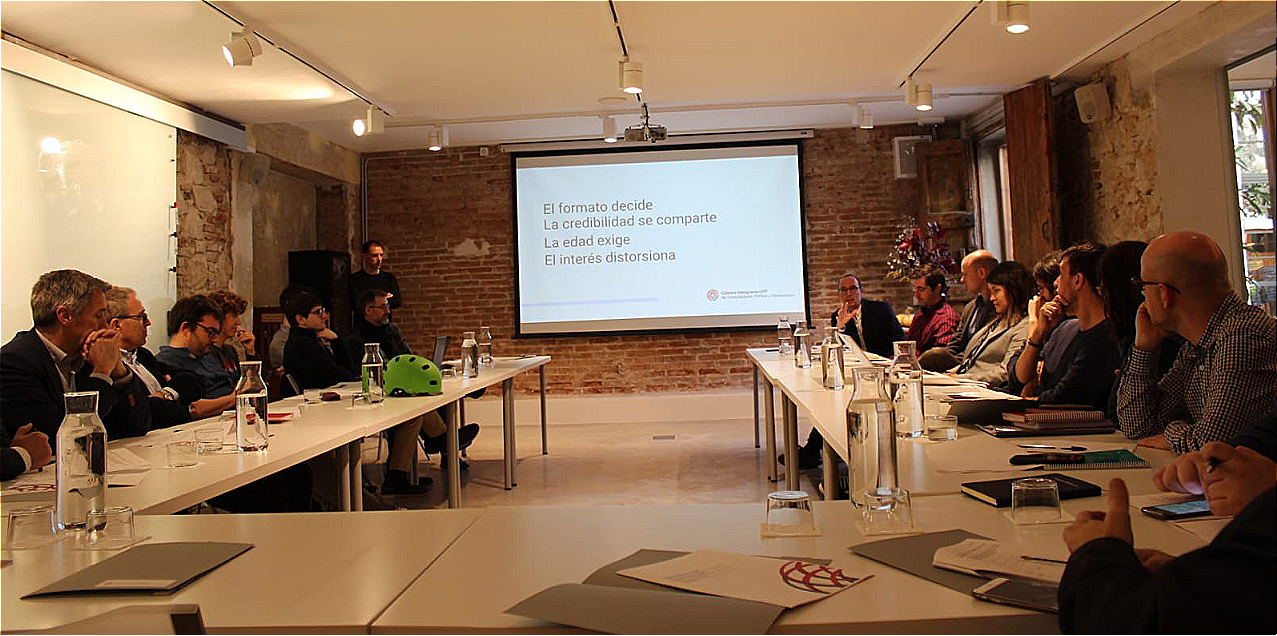“Analysis of the credibility of political information in the digital environment”, study carried out by the Ideograma-UPF Chair of Political Communication and Democracy
“Analysis of the credibility of political information in the digital environment”, study carried out by the Ideograma-UPF Chair of Political Communication and Democracy
“Analysis of the credibility of political information in the digital environment”, study carried out by the Ideograma-UPF Chair of Political Communication and Democracy
Identification of the levels of credibility of political information according to the format of information presentation: digital press, television, Facebook and WhatsApp.
By: Ideograma-UPF Chair of Political Communication and Democracy

The Ideograma-UPF Chair of Political Communication and Democracy carried out an investigation between 12 and 17 February in which it was identified whether the format in which information is received in the Internet environment conditions the credibility that citizens grant it. Specifically, it has been proposed to visualize the possible differences -in terms of credibility- in relation to four different formats: digital press, television, Facebook and WhatsApp.
The methodology for the development of this project is centred on the design of a survey by the Ideograma-UPF Chair and applied by the company YouGov Spain (C.A.W.I., online computer-assisted interview). The total sample of the survey was 1,664 people.
Respondents were divided into four groups, each of which displayed four news items on political topics in different formats. Exactly the same information content was used - news - and in the following media and platforms: television, digital press, WhatsApp and Facebook. The research has allowed us to know the degree of credibility given by the citizens surveyed to the same information presented in different formats.
The demoscopic experiment was based on the selection and edition of news on four different political topics: immigration, feminism, extreme right and LGTBI collective. The selection of the news was based on the following criteria:
- Relevant and real events, but distanced from the environments closest to those surveyed.
- Selection of global media news items subsequently edited so that the media could not be identified.
METHOD AND HYPOTHESES
The study is based on four main research hypotheses:
- In the digital environment, greater credibility is given to information presented in the format of traditional media (digital press, television) than to information presented in the format of social networks (Facebook and WhatsApp).
- The credibility that citizens give to information is positively correlated with the willingness to share it.
- Young people tend to be more credible and more likely to share news in the digital environment than older people.
- Citizens' interest in issues appearing in digital media positively affects both credibility and willingness to share news.
For the collection of information a Likert scale of 1 - 5 was used in which 1 corresponds to the least credibility, predisposition to share, or interest, as the case may be; and 5 to the greatest credibility, predisposition to share, or interest.
The principal investigators of this study are: Carles Pont, Reinald Besalú, Edgar Rovira, Santiago Castelo y Metzeri Sánchez. For more details and research results you can download the document here.
